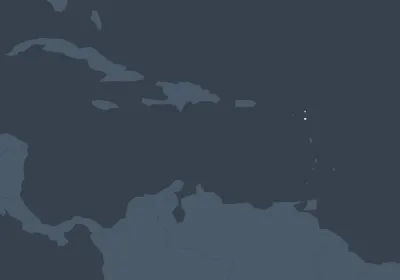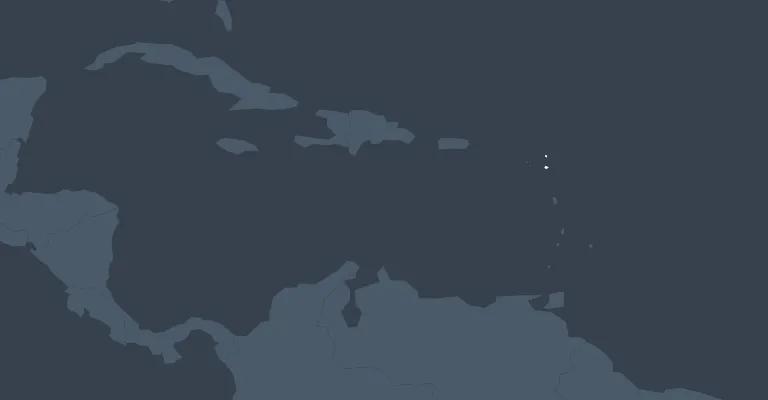
Antigua and Barbuda
| PR Political Rights | 32 40 |
| CL Civil Liberties | 51 60 |


Antigua and Barbuda is a democracy that holds regular elections. Corruption in government is a concern, and women and LGBT+ people are underrepresented in politics and experience some discrimination. Relations between Antigua and Barbuda are difficult, with the national government seeking to weaken Barbuda’s autonomy and its long-standing system of communal land rights. The country’s citizenship-by-investment program is a key element of its economy, but its operation has come under international scrutiny.
- The United Kingdom–based Privy Council, acting as Antigua and Barbuda’s final court of appeal, ruled in February that a legal challenge against the construction of an airport on Barbuda could proceed, and the lawsuit was underway at year’s end even though the airport had officially opened in October. Some members of the Barbuda Council had raised objections regarding the project’s environmental review as well as broader concerns that the airport could be used by the national government to erode Barbuda’s autonomy.
- Authorities noted an increase in robberies, murders, and some other categories of crime during the year, with particular concern surrounding youth and gun-related offenses. In one high-profile incident, a member of Parliament, Asot Michael, was stabbed to death in his home in November; earlier in the year, prosecutors in London had accused a wealthy businessman of bribing Michael during his 2014–17 stint as a government minister, but no connection between the cases was reported. In September, Parliament enacted a package of laws that imposed heavier prison terms for gang-related activities and firearm offenses, as well as a nighttime curfew for minors under age 18 who are unaccompanied by an adult. Also that month, Prime Minister Gaston Browne helped to broker a truce between two rival gangs.
This report has been abridged for Freedom in the World 2025 due to ongoing budget constraints. Freedom in the World is entirely funded by nongovernmental sources such as private foundations, corporations, and individuals like you. Please consider making a donation to support future editions of this vital resource.
For additional background information, see last year’s full report.
| Was the current head of government or other chief national authority elected through free and fair elections? | 4.004 4.004 |
| Were the current national legislative representatives elected through free and fair elections? | 4.004 4.004 |
| Are the electoral laws and framework fair, and are they implemented impartially by the relevant election management bodies? | 3.003 4.004 |
Score Change: The score declined from 4 to 3 due to a persistent pattern of disproportionately drawn constituencies and lack of transparency under the country’s weak campaign finance laws.
| Do the people have the right to organize in different political parties or other competitive political groupings of their choice, and is the system free of undue obstacles to the rise and fall of these competing parties or groupings? | 3.003 4.004 |
| Is there a realistic opportunity for the opposition to increase its support or gain power through elections? | 4.004 4.004 |
| Are the people’s political choices free from domination by forces that are external to the political sphere, or by political forces that employ extrapolitical means? | 3.003 4.004 |
| Do various segments of the population (including ethnic, racial, religious, gender, LGBT+, and other relevant groups) have full political rights and electoral opportunities? | 3.003 4.004 |
| Do the freely elected head of government and national legislative representatives determine the policies of the government? | 3.003 4.004 |
| Are safeguards against official corruption strong and effective? | 2.002 4.004 |
| Does the government operate with openness and transparency? | 3.003 4.004 |
| Are there free and independent media? | 3.003 4.004 |
| Are individuals free to practice and express their religious faith or nonbelief in public and private? | 4.004 4.004 |
| Is there academic freedom, and is the educational system free from extensive political indoctrination? | 4.004 4.004 |
| Are individuals free to express their personal views on political or other sensitive topics without fear of surveillance or retribution? | 4.004 4.004 |
| Is there freedom of assembly? | 4.004 4.004 |
| Is there freedom for nongovernmental organizations, particularly those that are engaged in human rights– and governance-related work? | 3.003 4.004 |
| Is there freedom for trade unions and similar professional or labor organizations? | 3.003 4.004 |
| Is there an independent judiciary? | 4.004 4.004 |
| Does due process prevail in civil and criminal matters? | 3.003 4.004 |
| Is there protection from the illegitimate use of physical force and freedom from war and insurgencies? | 3.003 4.004 |
Score Change: The score declined from 4 to 3 due to severe prison overcrowding and worsening criminal activity in recent years.
| Do laws, policies, and practices guarantee equal treatment of various segments of the population? | 3.003 4.004 |
| Do individuals enjoy freedom of movement, including the ability to change their place of residence, employment, or education? | 4.004 4.004 |
| Are individuals able to exercise the right to own property and establish private businesses without undue interference from state or nonstate actors? | 3.003 4.004 |
| Do individuals enjoy personal social freedoms, including choice of marriage partner and size of family, protection from domestic violence, and control over appearance? | 3.003 4.004 |
| Do individuals enjoy equality of opportunity and freedom from economic exploitation? | 3.003 4.004 |

Country Facts
-
Population
93,763 -
Global Freedom Score
83 100 free
